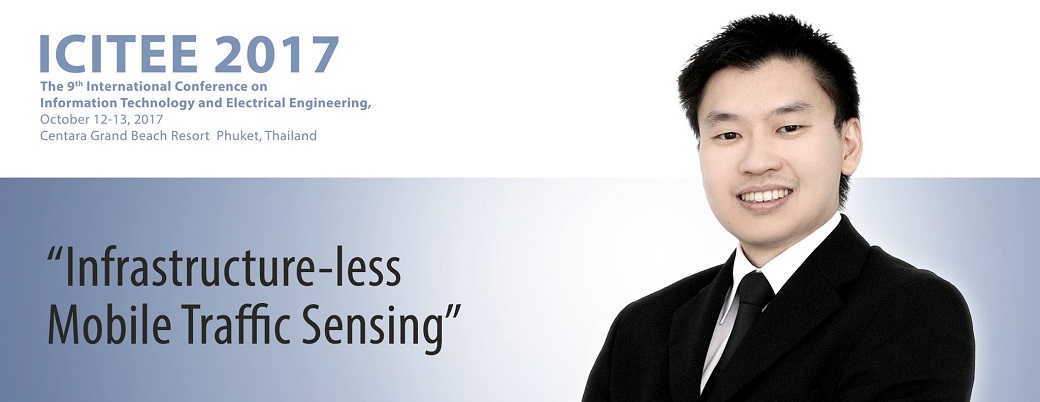
Sooksan Panichpapiboon
King Mongkut's Institute of Technology Ladkrabang
Abstract
Traffic information system is essential for alleviating the traffic congestion problem. Real-time traffic information such as average speed, vehicle density, flow rate, and travel time can help motorists choose a route more wisely. Currently, most of the traffic information systems are an infrastructure-based system, where traffic data are collected from fixed sensors such as inductive loop detectors and surveillance cameras. However, it usually takes a great deal of time and effort to install sensors in such a system. In addition, it is extremely costly to install fixed sensors to cover a large area (e.g., city-wide coverage).
An infrastructure-less traffic information system, where vehicles act as mobile sensors and collect the traffic data as they travel, is more appealing. As smartphones are becoming more powerful, they are suitable to be used as mobile sensing devices. Modern smartphones are now equipped with a variety of sensors such as global positioning system (GPS) receiver, accelerometer, gyroscope, camera, and microphone. These sensors may be exploited to collect real-time traffic data. More importantly, smartphones are now adopted by a large number of users. Therefore, any person with a smartphone can easily turn his or her vehicle into a mobile traffic sensor.
In this talk, we will discuss various ideas on how to use the bulit-in sensors available on off-the-shelf mobile devices for a traffic sensing application.
Biography
Sooksan Panichpapiboon is currently an Associate Professor in the Faculty of Information Technology, King Mongkut’s Institute of Technology Ladkrabang, Bangkok Thailand. He received the Ph.D. degree in Electrical and Computer Engineering from Carnegie Mellon University, Pittsburgh, PA, USA, in 2006. In April 2008, he was a Visiting Researcher with the Department of Information Engineering, University of Parma, Italy. His current research interests include intelligent transportation systems, vehicular ad hoc networks, sensor networks, and performance modeling.
Dr. Panichpapiboon was a recipient of the ASEM DUO-Thailand Fellowship in 2007. He received the Doctoral Dissertation Award from the National Research Council of Thailand in 2011 and the Siew Award for Electrical Engineering in 2015. He is a Senior Member of IEEE.